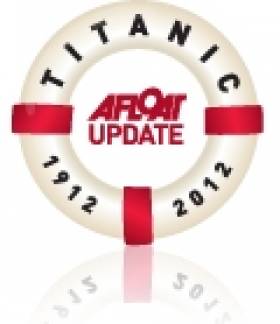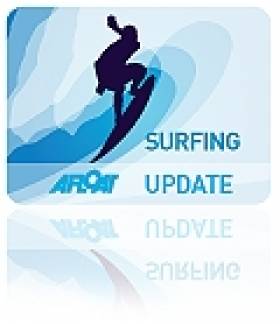Displaying items by tag: Blanchardstown
Aquatic Sporting Bodies Move To New Irish Sport HQ
#IrishSport - Ireland's national bodies for angling, canoeing and swimming have moved into their new home on the National Sports Campus.
The new Irish Sport HQ in Blanchardstown, west Dublin was officially opened by Taoiseach Enda Kenny on Wednesday 29 May.
Among the 19 sporting bodies that have followed the FAI in relocating their headquarters to the new centre are the Angling Council of Ireland, Swim Ireland and Canoeing Ireland.
Opening the facility, the Taoiseach said: "I'm delighted that significant progress has been made in the development of the National Sport Campus over the past 12 months.
"The opening of the Irish Sport HQ and the arrival of 19 national governing bodies is a major step in the development of the campus. Today's milestone will also help foster the sense of community and co-operation which I know already exists in Irish sport."
Minister for Sport Leo Varadkar also expressed his delight at being present for the opening of the Irish Sport HQ.
"The campus is now well on the way to being a national training centre for sport," he said. "It shows what can be achieved when you work on a realistic scale, within realistic budgets, in partnership with the sporting bodies."
Free Titanic Event at Blanchardstown Library
#TITANIC - This Saturday 26 May, Blanchardstown Library presents a series of talks and discussions on the history of the Titanic.
In her talk 'How the Titanic Touched My Family', author Martina Devlin tells the story of her grandmother's uncle Tom O'Brien, a farm labourer from Co Limerick who made plans to emigrate to America on board the ill-fated ship, but didn't tell his family he was taking someone with him - leading to a secret that was hushed up for generations.
Stephen Cameron will also be discussing his book Titanic - Belfast's Own, which looks at the ship from the perspective of those who helped to build it and "bring the dream to life".
Meanwhile, Patrick Fitzgerald of the Centre for Migration Studies at the Ulster American Folk Park gives his talk, 'A Window on Emigration', that accompanies the park's exhibition highlighting the stories of Irish emigrants who embarked for a new life in the New World on board the Titanic.
And Ed Coughlan of the Irish Titanic Historical Society will present his talk 'Titanic - A Voyage Into History', giving an overview of the Titanic story.
Registration is at 10.45am on the day, with the first talk starting at 11am. The event is free but booking is required on 01 8905563.
Surfing in the Suburbs This Weekend
Top surfers are headed to Ireland's most unlikely surfing festival this weekend in Dublin.
The Evening Herald reports that landlocked suburb of Blanchardstown has been transformed into a South Pacific-style beach for the surf event, designed to promote Ireland's global surfing charms among the Irish themselves.
Pro surfers will compete on a wave machine for the 53 Degrees North Open Surf Championship, but the same waves will also be open to beginners and younger surfing wannabes.
Herald.ie has more in the story HERE.


























































